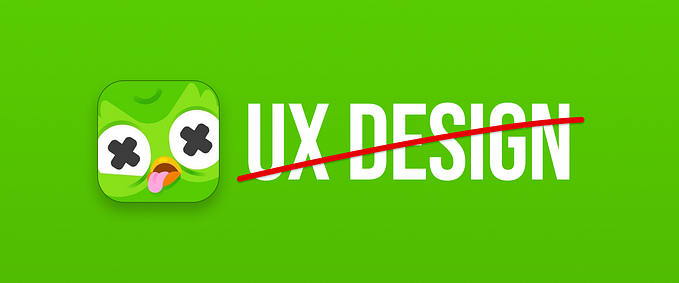The yet unexplored knowledge source for designers
Scientific publications are a huge source of knowledge for designers. Here is how to first approach it.
There are vast bodies of knowledge on fields that either intersect the products we make or are somewhat tangential to the design activity itself. Academia has been providing us with this virtually endless source of precious information we are not properly using. The double-diamond is cool but this could be next-level design.
Why we should read scientific articles
Don’t get me wrong, Medium is great. We should use it and use it wisely. But there is a generalized lack of scientificity on what we discuss here — not to mention the well-known fact that our community tends to gravitate around the same few subjects and books. And we tend to like silver bullet answers a bit too much.
Remember that 5-user-rule-of-thumb from Jakob Nielsen? It was first mentioned in his paper called A Mathematical Model of the Finding of Usability Problems — which most likely has never been mentioned before on the hundreds of Medium articles about this topic.
Because there are some methodological and theoretical limitations to Nielsen’s method one could only find out reading the original article, we as a design community missed the opportunity to have some really important discussions.

For instance, Nielsen approximated the number of usability problems found in an interface by the Poisson distribution. Such mathematical model requires a parameter called lambda (λ), which is the probability of finding the average usability problem by an average evaluator. In his work, Nielsen found lambda to be 33% — which is the mean average from 11 other studies.
Those studies are completely different, should we use different lambdas for different studies categories? How were such studies conducted? The heuristic evaluation of a mainframe Character-based User Interface (CUI) is being used to determine the lambda parameter we are using to this day — is that ideal? Shouldn't we update this number? What will happen to the lambda parameter as users get more used to computer interfaces and usability patterns are being used more consistently by designers? Jared Spool questioned this result in his article Testing web sites: five users is nowhere near enough but we missed this high-level discussion.
Those are just a few questions we should be asking and discussing as a community. Instead, we created and propagated a myth based on something we didn't fully understand because we never actually studied the subject. What other important discussions are we unknowingly missing?
As a community we are eager to claim a more scientific approach to design in a clear attempt to stray away from the subjectivity that haunt our field. But are we really willing to do the hard work required to do so?
Reading well done academic research could have lots of benefits for the design community and for its individuals.
We will be able to broaden our tunnel vision and face charlatanism and pseudo-intellectualism.
We could learn how to properly control variables, how to apply new methods and broaden our toolbox, how to design experiments, how to actually do a proper quantitative interpretation of data, how to think critically, and question those hundred of silver bullet answers and rules of thumb we have.
We would understand that knowledge should be evolving, which could help us think critically about this static body of knowledge we have been spreading and consuming for the past few years.
And finally, we could be able to set aside some subjectivity and make facts and well-made arguments the center of our conversations for good.
Real-world examples
Online legibility
You have probably read before about text legibility and seen a few guidelines on this matter. They usually approach topics like how long sentences should be, what fonts are better for online reading, and whether or not one should use uppercase. Now try to remember how many of those actually referred to studies on how humans read and perceive information— which is an extremely complex subject, by the way. Not many, right?
Now take a look at this article called Text Legibility and the Letter Superiority Effect. It not only teaches us about this super interesting effect you would never know if you were not studying this field, but there is also a lot of precious information on how cognitive psychology studies are conducted.

In this particular study, the authors found that serif fonts weren't much better than san-serif ones when it comes to legibility. And that is the exact opposite of what Medium articles usually say. Who’s right? I don’t know, and that is the beauty of reading academic research: it forces you to confront what you think is correct and think critically about the information you took for granted.
Habit-forming apps
There is a lot of discussion on how to create apps that help with habit formation. But did you know even behavior scientists are unsure how to do that? This is a very hot topic right now and there is a lot yet to be unveiled by future studies.
A designer following this ongoing academic discussion would be able to understand that there is only so much one can do to help to build and reinforce habits — which is both humbling (because we would learn we don’t hold the answer) and could actually help us think outside the box when it comes to this subject.
Instead of reading the same old psychology books and referring the same old ideas, we could be ahead of the curve, closely watching the frontier of science unveiling its secrets.
The economics of tipping
Uber and so many other apps allow you to give tips. There is a vast body of knowledge on behavioral economics and the tipping phenomenon (here are a couple of examples: [1] and [2]). It ranges from how tipping is related to the social hierarchy to how it changes the money flow in establishments and help with income distribution. But there is also a lot of content on the side effects tipping might create — both emotional and economical.

As designers, our job is not only to polish a button users will click to tip someone for the great job they did. We need to think about how this button can affect the business, the emotional and economical relationship between the agents involved, and even try to foresee what side effects might emerge.
Changing the tipping dynamic in your service can change your NPS and other important metrics. But that’s not trivial. So how could one figure this out? Only by looking for information outside the design bubble.
What else is there?
There are hundreds of other equally important subjects that could benefit from a little more rigor. Here is a small list of extremely interesting discussions that could benefit the modern designer.
- Examining mobile phone text legibility while walking
- On the Portability of Computer-Generated Presentations: The Effect of Text-Background Color Combinations on Text Legibility
- Human Color Perception, Cognition, and Culture: Why “Red” is Always Red
- How to Boost your App Store Rating? An Empirical Assessment of Ratings for Mobile Banking Apps
- The challenges of co-developing a behaviour change app that aimed to make physical activity a habit
- Letter case and text legibility in normal and low vision
I lean towards more technical stuff but there are a lot of in-depth discussions about the social aspect of creativity and about the neuroscience behind it, the design discipline as a whole, human perception of color, the psychology of decision making, usability, text legibility and honestly so much more.
Doesn't matter how specific the subject you are looking for is, odds are someone has written a scientific paper about it.
Breaking the bubble
There are a lot of great websites to hunt for academic papers. Here are a few to get you started.
Final thoughts
Reading scientific papers won’t be easy at first. The literature doesn’t always agree, there is a lot of digging necessary, there are lots of great articles locked behind pay-walls and yes, there is a lot of bad research out there. The searching experience will not be as friendly but this ability can dramatically change how we approach design by introducing some more scientific rigor, critical thinking, and infusing our community with precious knowledge.





